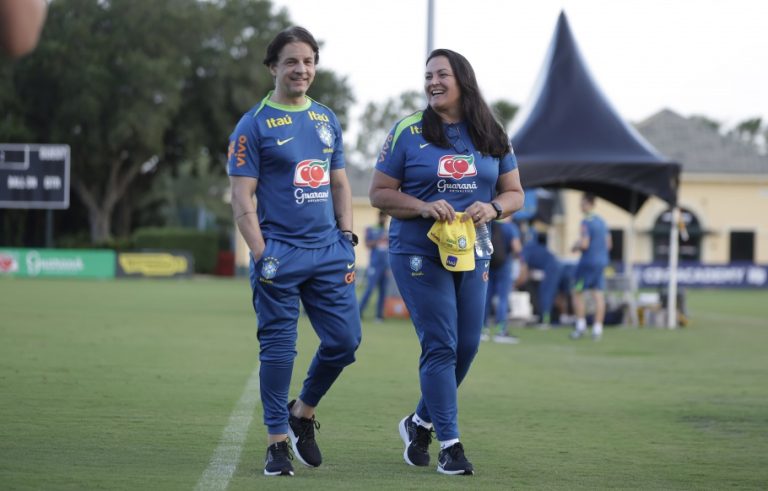The Copa América will be the first official competition for psychologist Marisa Santiago with the Brazilian National Team. With a master’s degree in Sports Psychology from UFMG (Federal University of Minas Gerais), she has been working intensely for a week on the preparation of the Seleção for the continental competition, which will open on the 20th.
READ MORE
++ Possible lineups for the Brazil vs Mexico friendly before the Copa América
++ Every time Brazil and Mexico faced each other
++ Will Neymar join Santos?
Behind the scenes, Marisa is always attentive and talking to the athletes during the breaks in activities. She also has a special room at the hotel to receive the players.
“I am in the connection phase, to get closer to the athletes. Some have already had individual sessions. I am in the process of setting up some structure, getting to know their reality better and the demands they bring,” explained the national team psychologist.
“We are building something that we understand will be able to help them a lot in these issues of working on the mental part so that they can have this good performance,” she added.
In an interview with the CBF, Marisa clarifies the difference between her work and clinical psychology.
“Sports psychology is not like clinical psychology, where there are issues that will be discovered, disorders that will be treated, and other issues. Sport is an environment where there is a lot of competitiveness, a lot of pressure for results. So, it does welcome the athlete, the people who are in the sports environment, but it is different from clinical psychology. My work is really focused on performance, on the result,” she said.
Marisa’s work is focused on the mental training of the athletes.
“My work goes beyond the field. On the field they let their skills flow. This is very important. The mental part comes so that they can absorb what was learned at the time of training so that they can work on it after training. The athlete wonders: Wow, what I did in training was cool? These are internal conversations, what we call self-talk, in the sense of organizing what was learned in training, how it was worked on in training,” she explained.
“The idea is to take some points to their day, which will articulate all this learning so that the athlete can form a whole to perform well and have this as a truth for his learning,” the psychologist told CBF TV.
Remembering Zagallo
Sambafoot Series launched a new documentary about the football legend Zagallo. Known as ‘Velho Lobo‘ and as superstitious as it gets, Zagallo helped shape what Brazilian football is nowadays — as a player and as a coach.
Binge the full series, available on Sambafoot’s Youtube channel.



